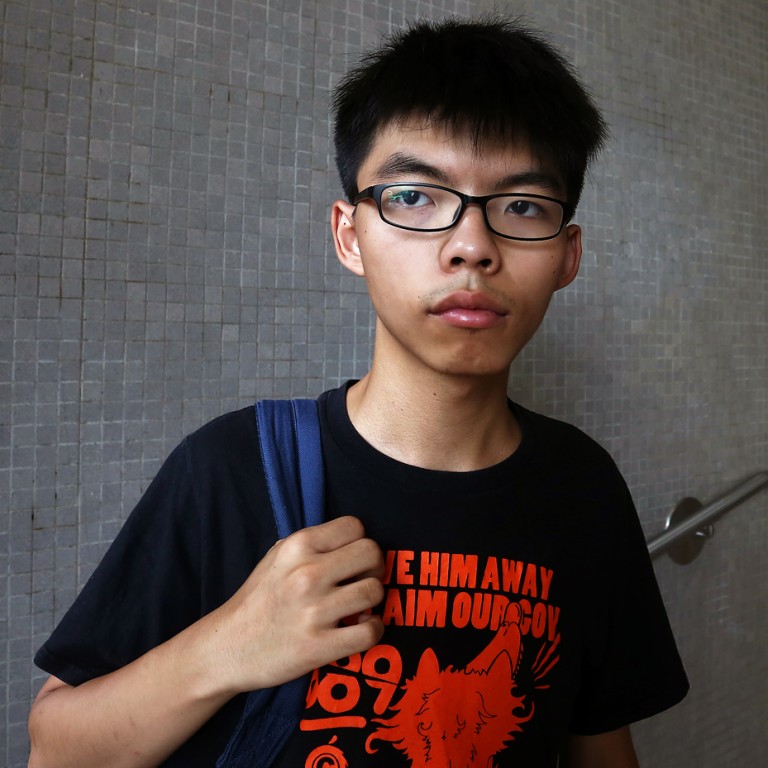
We don't need another Occupy: Joshua Wong reveals new approach and plan for referendum on Hong Kong's post-2047 future
A year on from class boycott that triggered 79-day sit-ins, Scholarism convenor takes long view with plan for crunch vote in 15 years
Student activist Joshua Wong Chi-fung said another civil disobedience movement "will not be of much help" for Hong Kong in the next few years, as the 79-day Occupy movement taught him the need to change people's belief that democracy is only achievable under the government's rules.
Scholarism convenor Wong - a key player in the protests last year - says his group is considering a campaign to advocate "self-determination" for Hong Kong and amend its mini-constitution to achieve "genuine democracy".
Read more: Moment YouTuber confronts Hong Kong Occupy Central leader Joshua Wong on packed MTR train (and angry passengers tell him to stop)
The Basic Law stipulates that when Hong Kong elects its leader by popular ballot, a committee shall be responsible for nominating candidates. Scholarism and pan-democratic parties want the public to be allowed to put forward hopefuls.
"We hope that in three years, we can set up [new bodies to monitor the government] and a civil referendum system … and the long-term goal is to organise a vote to determine Hong Kong's political future after 2047," Wong said, referring to the expiry date of Beijing's 50-year promise under the "one country, two systems" formula.
Read more: Coming to America: Hong Kong democracy trio to address forum on Occupy movement
Read more: Scholarism offers to fund water tests for 20 to 30 Hong Kong secondary schools
Wong, a 19-year-old Open University student, added that in such a vote, which could be held in 2030, Hongkongers should be allowed to choose from three options: continuing "one country, two systems"; adopting the mainland's systems; or independence after 2047.
But Wong says he is not a "pro-independence" activist because he does not think independence is the city's "only option".
Beijing has repeatedly warned against the rise of pro-independence sentiment in Hong Kong, and hinted it would not recognise any kind of "referendum".
But Wong believes that if the new bodies that monitor the government become popular and a mature voting system can be set up, the 2030 "referendum" will put much greater pressure on the authorities.
"It is crucial the pan-democratic parties push this with us, but … I am disappointed they are still calling for the government to restart the political reform process," Wong said.
In June, the pan-democrats voted down the government's reform package to achieve universal suffrage for the chief executive in 2017.
"The people's mindset has to change … because what if the government relaunches the political reform process and Beijing comes up with the same stringent framework" it set last year, Wong added.
"[All this] cannot be achieved by civil disobedience … in the future we will have civil disobedience but it won't help much in the next two years."
Labour Party lawmaker Cyd Ho Sau-lan told the the pan-democrats' and Scholarism's plans and demands were not mutually exclusive.
One year ago today, university students launched a five-day class boycott in protest against Beijing's ruling on Hong Kong electoral reform.
Scholarism joined the sit-in outside the government's headquarters on September 26 and it evolved into the largest social movement since the 500,000-strong rally against national security laws in 2003.
Asked whether he had any regrets about the movement, Wong said the decision-making could have been better. "Some people said if we had escalated action the week after [the police fired tear gas on] September 28 … the government may have backed down in two months."

